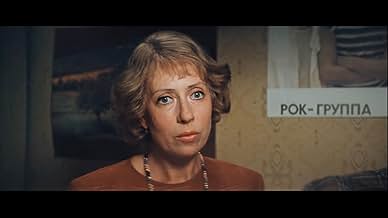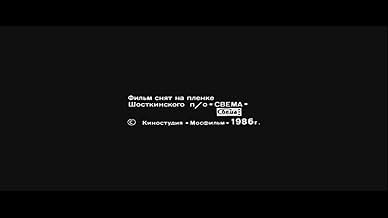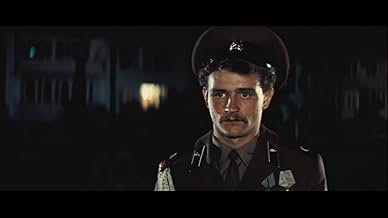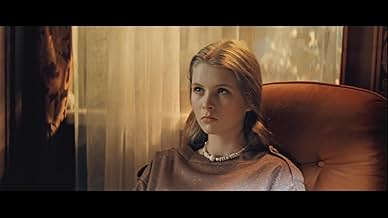L'histoire d'un adolescent au moment de la chute du communisme dans l'Union soviétique.L'histoire d'un adolescent au moment de la chute du communisme dans l'Union soviétique.L'histoire d'un adolescent au moment de la chute du communisme dans l'Union soviétique.
- Récompenses
- 1 victoire et 2 nominations au total
Aleftina Evdokimova
- Mariya Viktorovna Kuznetsova
- (as Alevtina Yevdokimova)
Andrei Vertogradov
- Fyodor Ivanovich Miroshnikov
- (as A. Vertogradov)
Eleonora Zubkova
- Birthday Guest
- (as E. Zubkova)
Nikolay Kornoukhov
- Sotrudnik otdela kadrov
- (as N. Kornaukhov)
Larisa Kurdyumova
- Birthday Guest
- (as L. Kurdyumova)
Olimpiada Kalmykova
- Birthday Guest
- (as O. Kalmykova)
Vera Sotnikova
- Natasha
- (as V. Sotnikova)
Alika Smekhova
- Nina
- (as A. Smekhova)
Histoire
Le saviez-vous
- AnecdotesSeeing from advance screenings that the film was appealing largely to teenage audiences, the original June release date was postponed since in the USSR at that time young people tended to engage in outdoor activities or leave town for travel during the summer.
- ConnexionsFeatures Kenka karate kyokushinken (1975)
- Bandes originalesTrava u doma
Music by Vladimir Migulya
Lyrics by Anatoliy Poperechnyy
Performed by Fyodor Dunayevsky and Inna Churikova
Commentaire à la une
I imagine that Courier holds a similar place in Russian youth culture to the role John Hughes' movies hold in American culture; at the very least, I hope it does. Shakhnazarov's film is recognizably set in the 1980's, but it also seems to be timeless (besides the idiosyncratically 80's music), and this is perhaps due to the selective portrayal of Moscow. The majority of cinematic depictions of the city, where famous locations are shown at a remarkable landmark to frame ratio, make the city so prominent that it's hard to differentiate it from human characters. In Courier, however, the uniformity of Soviet dwellings and buildings make the city anonymous; the only obvious references to it are in name only. This adds to the universality of the film and Ivan's experiences. While Ivan frustrates with his nonchalance and frequent lying, the poetic scenes that Shakhnazarov fits in the corners belie the heart of the film, as well as the inner workings of Ivan's mind. Stereotypically "African" warriors haunt his dreams; he converses with a bust of his very-much-alive father in a mausoleum. At the end of the day, Ivan comes off as scared and confused at the aftermath of his parents' divorce that overshadows his mother's and his own life. The film vacillates between a gritty, saturated daily life and a surreal subconscious effortlessly. By the end, the viewer finds themselves sympathizing with Ivan. It is an accessible film for all ages in any era, although unfortunately my own life doesn't include break dancing to heavy synthesizers as the sun sets.
- samanthamarciafarmer
- 9 déc. 2015
- Permalien
Meilleurs choix
Connectez-vous pour évaluer et suivre la liste de favoris afin de recevoir des recommandations personnalisées
- How long is Courier?Alimenté par Alexa
Détails
Box-office
- Montant brut mondial
- 20 192 $US
Contribuer à cette page
Suggérer une modification ou ajouter du contenu manquant

Lacune principale
By what name was Le garçon de course (1986) officially released in India in English?
Répondre































